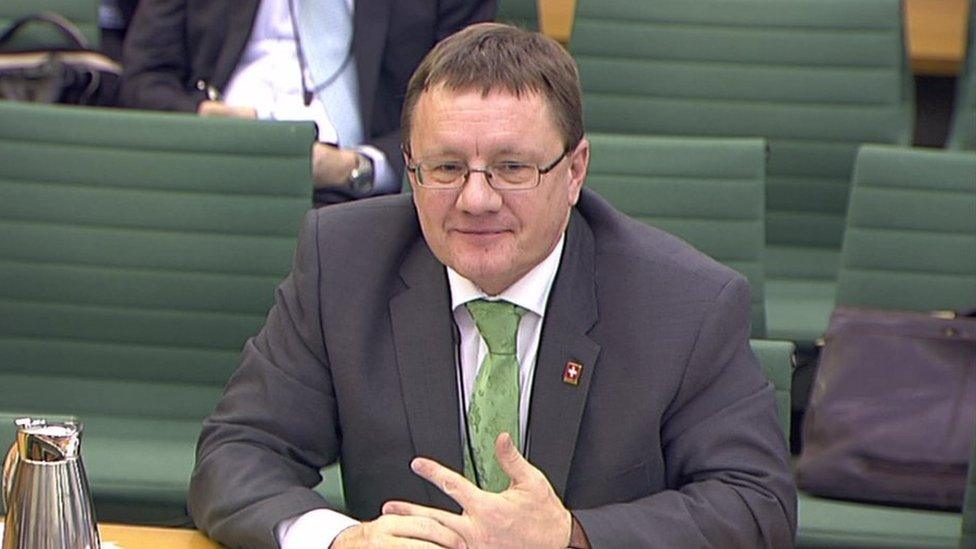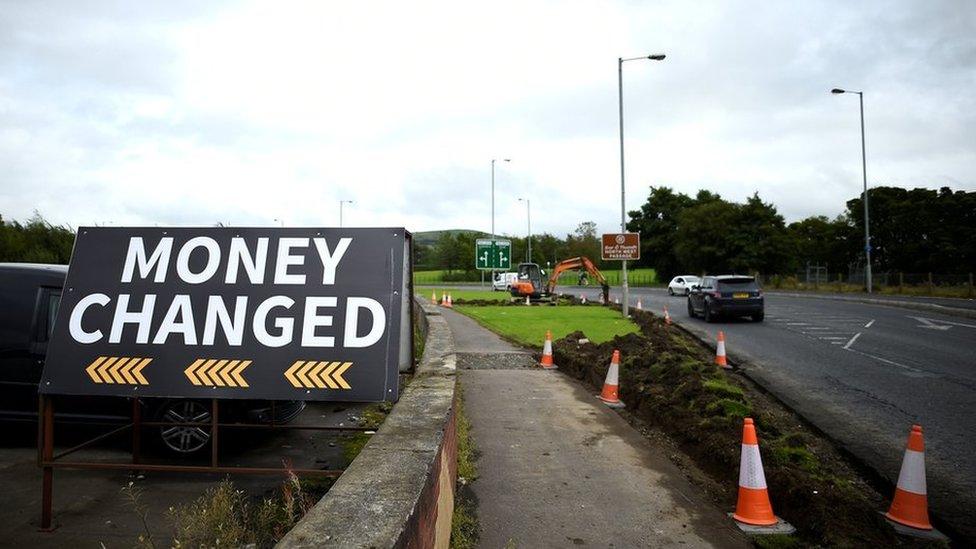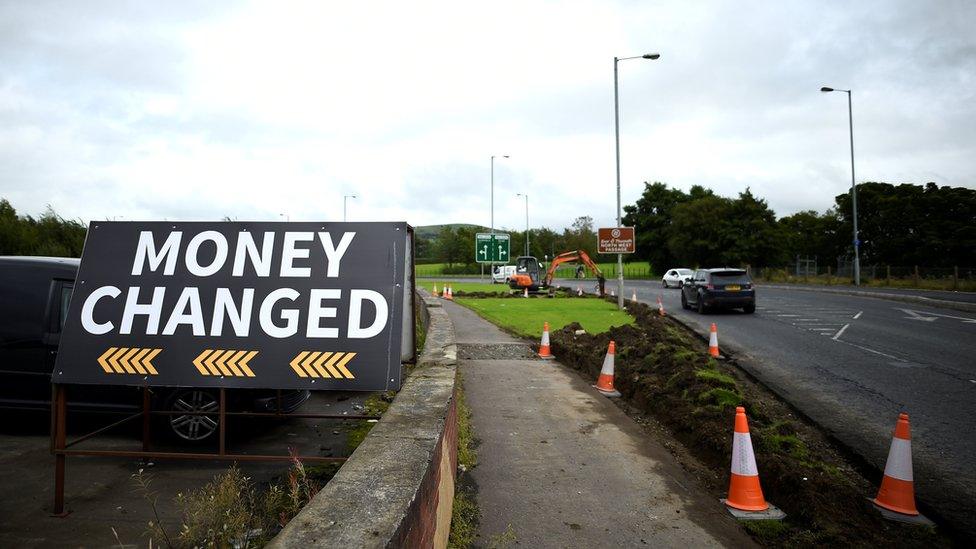Invisible Irish border possible after Brexit, says Swiss expert
- Published

Dr Bock said an invisible border would require UK and Irish border patrols
It is possible to maintain an "invisible border" in Ireland after Brexit, the head of the Swiss customs service has suggested.
Dr Christian Bock was giving evidence to Westminster's Northern Ireland Affairs Committee.
He said a number of conditions would need to be met, including common border patrols involving UK and Irish staff.
He gave an example of German police helicopters flying in Switzerland with Swiss customs staff on board.
He said there would still need to be customs "control points" but those could be at locations away from the border, such as at business premises.
Dr Bock said there would also have to be an intelligence strategy, a pre-qualification system for trusted traders and a system for easing low-risk trade.
'Don't need to stop'
Only about 2% of consignments crossing the Swiss border have to be subject to physical checks, he said.
For bulk products like milk, which cross the border on a regular basis, he said it would be possible to have a system where traders make administrative returns on a monthly basis.
"You don't need a system where you stop every time at the border," said Dr Bock.

Finding a solution for the Irish border issue is one of the most sensitive in the Brexit talks
"If you look at their accounts, what they have declared, what are the invoices."
Such an arrangement is only possible in Switzerland because of a veterinary agreement with the EU.
That governs the control of animal diseases, trade in animals and animal products and the import of those animals and products from third countries.
Switzerland also has to modify its legislation in response to changes in EU legislation.
'Boots on the ground'
Lt Col Rebekka Straessle, the head of the Swiss border guard, also gave evidence to the committee about the use of camera technology at the Swiss border.
She said there are cameras at most crossing points and they play an important role in risk analysis.
UK government ministers have said they do not want to have cameras at the Irish border after Brexit but will need them on approach roads.
Lt Col Straessle said enforcement has to take place through technical means or "boots on the ground", adding: "I don't see a third way."
On Tuesday, Brexit Secretary David Davis said it should be "relatively easy" to maintain a soft border in Ireland as long as there is a zero-tariff trade deal with the EU.
He told a House of Lords committee that the UK had to "tread carefully" on the Irish border issue as the EU is "terribly suspicious" that it is being used to "lever an outcome" in the wider negotiations.
- Published31 October 2017
